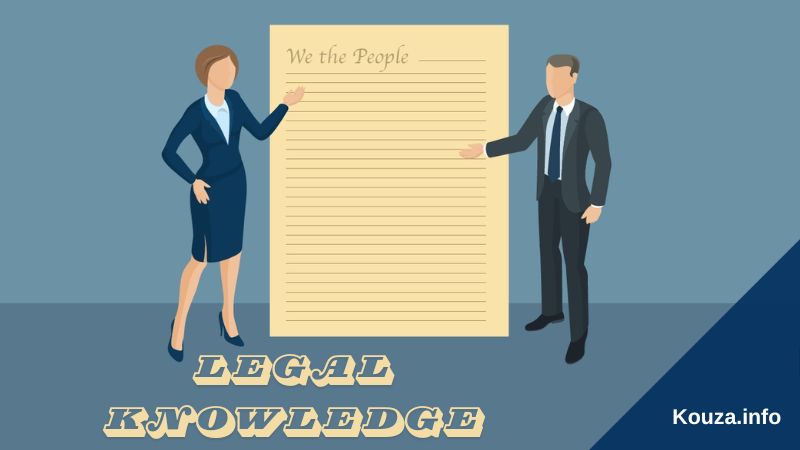
In the realm of legal practice, constitutional law stands as a cornerstone, shaping the very foundation of societies and governing the relationships between individuals and their governments. To navigate this intricate domain successfully, aspiring lawyers must equip themselves with a diverse array of skills. These skills for constitutional lawyers are not merely tools of the trade but the building blocks of a formidable legal practice. Let Kouza.info delve into the essential skills that pave the path to mastery in constitutional law.
Essential Skills for Constitutional Lawyers
Legal Knowledge: The Bedrock of Expertise

At the heart of every proficient constitutional lawyer lies an unwavering foundation of legal knowledge. Mastery of constitutional law, including the intricacies of the Constitution itself and seminal Supreme Court decisions, forms the bedrock upon which legal arguments are constructed. A deep understanding of historical and contemporary interpretations of constitutional provisions enables lawyers to navigate the complexities of constitutional litigation with finesse. Thus, the pursuit of excellence in constitutional law begins with a relentless commitment to expanding one’s legal knowledge.
Analytical Skills: The Key to Unlocking Complexity
In the labyrinthine corridors of constitutional law, analytical prowess reigns supreme. Constitutional lawyers must possess the acumen to dissect complex legal issues, unraveling the threads of intricate constitutional questions with precision. Through rigorous analysis, they identify relevant legal precedents, statutes, and theories to fortify their arguments. This analytical lens enables constitutional lawyers to discern the nuances inherent in constitutional disputes, thereby crafting cogent legal strategies. Thus, honing analytical skills is indispensable for those aspiring to excel in the realm of constitutional law.
Research Skills: Navigating the Legal Terrain

In the digital age, proficiency in legal research has become an indispensable asset for constitutional lawyers. Adept at traversing vast legal databases and repositories, lawyers unearth the precedents, statutes, and scholarly insights that underpin their legal arguments. Through meticulous research, they fortify their positions, marshaling a formidable array of legal authorities to bolster their cases. Thus, a mastery of research skills equips constitutional lawyers with the tools necessary to navigate the ever-expanding terrain of constitutional jurisprudence.
Critical Thinking: Discerning Truth Amidst Complexity
Amidst the cacophony of legal discourse, critical thinking emerges as a guiding light for constitutional lawyers. Armed with a discerning intellect, they scrutinize legal arguments with a keen eye, discerning the subtle nuances that underlie constitutional disputes. Through rigorous analysis, they distinguish between sound legal reasoning and fallacious arguments, thereby charting a course towards truth and justice. Thus, the cultivation of critical thinking skills empowers constitutional lawyers to navigate the complexities of constitutional litigation with clarity and conviction.
Communication Skills: Advocacy in Action
In the hallowed halls of justice, effective communication is the currency of advocacy. Constitutional lawyers must possess the eloquence to articulate their arguments persuasively, captivating judges and juries alike with the power of their words. Whether through oral advocacy in the courtroom or the drafting of meticulous legal briefs, effective communication lies at the heart of legal practice. Thus, honing communication skills empowers constitutional lawyers to wield their advocacy with precision and poise.
Persuasion: The Art of Advocacy
At its core, constitutional litigation is a battleground of ideas, where the forces of persuasion clash in pursuit of justice. Adept at weaving compelling narratives and marshaling persuasive arguments, constitutional lawyers sway the hearts and minds of decision-makers with finesse. Through the artful deployment of rhetoric and reason, they advocate tirelessly for the rights and liberties enshrined in the Constitution. Thus, the cultivation of persuasive skills empowers constitutional lawyers to effectuate change and uphold the principles of justice.
Attention to Detail: The Devil in the Details
In the labyrinthine corridors of constitutional law, attention to detail reigns supreme. Lawyers must possess a meticulous eye for detail, ensuring accuracy in legal analysis, document drafting, and argumentation. From scrutinizing legal texts to parsing complex legal doctrines, a keen attention to detail enables constitutional lawyers to navigate the intricacies of constitutional litigation with precision. Thus, cultivating this skill is essential for those seeking to excel in the practice of constitutional law.
Ethical Integrity: Upholding the Pillars of Justice
In the pursuit of justice, ethical integrity serves as a guiding beacon for constitutional lawyers. Upholding the principles of professional conduct and ethical responsibility, they navigate the complexities of legal practice with integrity and honor. From maintaining client confidentiality to upholding the rule of law, ethical integrity forms the bedrock upon which the edifice of justice rests. Thus, constitutional lawyers must remain steadfast in their commitment to ethical principles, ensuring that justice prevails in every courtroom.
Adaptability: Navigating the Winds of Change
In the ever-evolving landscape of constitutional law, adaptability is paramount. Lawyers must remain vigilant, staying abreast of new developments in constitutional jurisprudence and adapting their strategies accordingly. Whether grappling with emerging legal doctrines or confronting novel constitutional challenges, adaptability enables constitutional lawyers to navigate the winds of change with agility and resilience. Thus, cultivating this skill is essential for those seeking to thrive in the dynamic realm of constitutional law.
Interpersonal Skills: Building Bridges, Forging Alliances
In the arena of legal practice, interpersonal skills are indispensable. Constitutional lawyers must cultivate strong relationships with clients, colleagues, and legal professionals, fostering an environment of collaboration and mutual respect. Through effective communication and empathetic engagement, they build bridges across divides, forging alliances in pursuit of justice. Thus, honing interpersonal skills empowers constitutional lawyers to navigate the complexities of legal practice with grace and professionalism.

Time Management: Mastering the Clockwork of Legal Practice
In the crucible of constitutional litigation, time is of the essence. Lawyers must possess strong time management skills, balancing competing demands and deadlines with finesse. From meeting court-imposed schedules to managing voluminous caseloads, effective time management enables constitutional lawyers to navigate the rigors of legal practice with efficiency and precision. Thus, cultivating this skill is essential for those seeking to excel in the demanding field of constitutional law.
Empathy: Understanding the Human Dimension
Amidst the intricacies of constitutional disputes, empathy emerges as a guiding principle for constitutional lawyers. By understanding the human dimension of legal issues, they empathize with the struggles and aspirations of their clients, lending a compassionate ear to their concerns. Through empathetic engagement, constitutional lawyers forge deeper connections with those they serve, embodying the principles of justice and compassion. Thus, cultivating empathy is essential for those seeking to uphold the dignity and rights of all individuals under the mantle of constitutional law.
Sum Up
In conclusion, the journey to mastery in constitutional law is paved with a diverse array of skills. From legal knowledge to analytical prowess, communication skills to ethical integrity, each skill forms a vital piece of the puzzle. By cultivating these skills for constitutional lawyers with diligence and dedication, aspiring them can chart a course towards excellence in the practice of law. As guardians of the Constitution, they wield their skills with conviction and clarity, upholding the principles of justice and liberty for all.
Conclusion: So above is the Essential Skills for Constitutional Lawyers article. Hopefully with this article you can help you in life, always follow and read our good articles on the website: kouza.info




